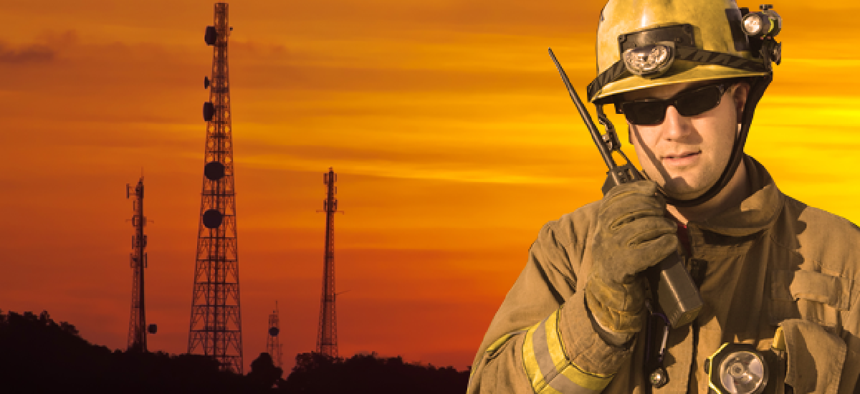Connecting state and local government leaders
After Detroit established the first city police radio system, the state maintained an upgrade path that kept it at the forefront of local public safety communications.
First of two parts.
Whether it was airliners bringing down the Twin Towers or Hurricane Katrina slamming into New Orleans, disasters over the past 15 years have demonstrated both the importance and vulnerability of public safety communications.
Emergency personnel responding to the collapse of the Twin Towers were severely hampered by overloaded radio channels and incompatible communications equipment.
And according to Eddie Compass, the New Orleans police superintendent during the chaos that followed Hurricane Katrina, his department had no communications at all for days, a lack he described as nearly as catastrophic as running out of ammunition.
In contrast, when a blackout struck on August 14, 2003, disrupting power in the Northeastern and Midwestern United States, public safety personnel in Michigan barely noticed any impact on communications.
"All of our [transmission] sites have redundant power, with generator power as well as commercial power," said Bradley Stoddard, director of Michigan's Public Safety Communications System (MPSCS). "Many of our sites in Southeast Michigan lost commercial power and kicked over to generator power. End users on the network had no idea. There was no loss of communications whatsoever."
Michigan, in fact, has long been a leader in developing public safety communications systems. Stoddard attributes that success to the state’s ability to keep an eye on economies of scale and adhere to standards that paved the way for expansion of shared public safety networking across the state.
“It really started in 1928,” Stoddard said. “The city of Detroit had the first public safety radio communications in the United States and, I would venture, probably the world.”
In 1928, of course, state of the art meant one-way radio communications from the police station to the patrol car. Nevertheless, according to Stoddard, Michigan’s state police force was so impressed by what it saw in Detroit that it pushed for similar capabilities.
Michigan again led the way in the 1940's, being one of the first states to install two-way radio communications in patrol cars. "At that time," noted Stoddard, "mobile radios were very large, as were the base stations."
While radio communications equipment gradually became smaller, lighter and better performing, the system set up in the 1940s remained fundamentally unchanged until the mid-1980s, when state police, noting the increasing mobility of criminals, wanted troopers to have the ability to communicate statewide, instead of just within jurisdictions.
And state officials didn't want a system that just connected state police to each other, Stoddard said. They envisioned a network that local police as well as other agencies at state and local levels could join.
Shared communications services
"The governor's office saw that the state police had a radio system, the Department of Natural Resources had a radio system and the Department of Transportation had a radio system," Stoddard said. "It became an issue of economies of scale. Why does everyone need to have their own radio system? Why don't we build one new system that provides statewide capability and then collapse those systems and bring the state agencies together?"
The challenge was that across jurisdictions agencies were using different, and in many cases not interoperable, equipment. It wasn't until 1989 that a coalition of federal agencies and public-safety professional associations established Project 25, a set of standards for digital radio equipment that made a statewide system feasible.
The Project 25 suite of standards involves digital land mobile radio (LMR) services for local, state and federal public safety agencies. In such systems, radios can communicate in analog mode with legacy radios and in either digital or analog mode with other P25 radios.
"By the mid-1990s, the RFPs went out for the system," Stoddard said. As a result, Michigan state agencies were ahead of the game when the events of September 11, 2001, occurred, thanks to its network of microwave radio transmission stations.
That piqued interest in the legislature to determine if there would be opportunities for local public safety to leverage the same statewide radio system that state agencies had access to, according to Stoddard.
Between 2002 and 2014, as agencies and local jurisdictions replaced equipment with Project 25-compliant systems, the statewide digital voice IP system has grown to cover 57,000 square miles of Michigan using 244 microwave transmission towers across the entire state
"In 2002 we had 152 agencies, both state and local, utilizing the system and roughly about 11,000 radios," Stoddard said. "Today we have 1,460 agencies representing local, state, federal, tribal and private, and roughly 67,000 radios. So just in a dozen years we have seen monumental growth."
Next: Tech decisions driving Michigan’s public safety expansion



